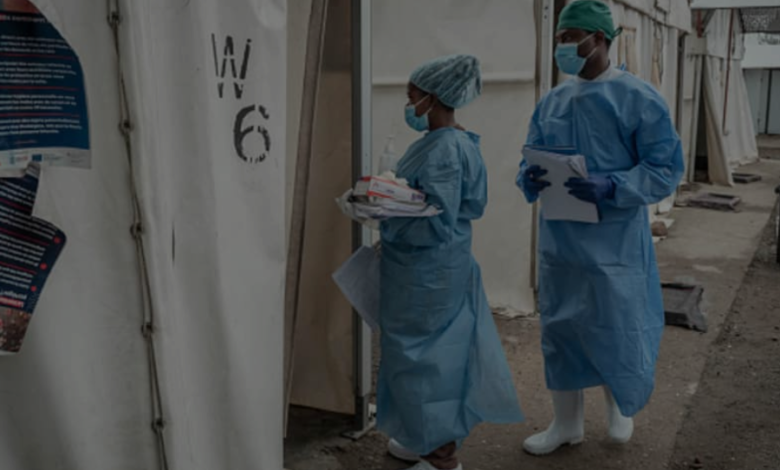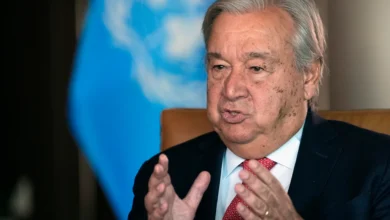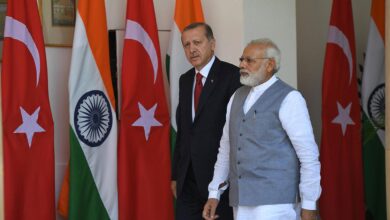WHO Europe chief says mpox ‘is not the new COVID’

Berlin — The World Health Organization says basic public health measures can stop outbreaks of pox and potentially eliminate transmission of the virus, which has caused 99,176 cases of the disease and 208 deaths globally since 2022. We know how to control pox, and, in the European region, the steps needed to eliminate its transmission,” Dr. Hans Kluge, WHO regional director for Europe told journalists Tuesday in Geneva.
Two years ago, we controlled pox in Europe, thanks to the direct engagement with the most affected communities of men who have sex with men,” he said. “We had robust surveillance in place. We meticulously investigated new case contacts. And we provided sound public health advice. Speaking on a video link from Copenhagen, Kluge said the WHO had been able to control the outbreak through behavior change and nondiscriminatory public health action, as well as pox vaccination.
Learning from our success, we urged governments and health authorities to sustain those measures — to help eliminate pox from Europe,” he said. “But through a lack of commitment and a lack of resources, we failed to go the last mile. We have seen an average of approximately 100 new cases of pox clade 2 each month in the European region as it stands today. The pox, by July 2022, had already been declared a PHEIC—the highest level of alert—by the WHO after a multicountry outbreak and the rapid global spread of the disease through sexual contact. WHO declared the PHEIC over in May 2023.
However, an outbreak of pox in the Democratic Republic of Congo and other rising numbers of countries in Africa this year led to a second pox-related PHEIC declared on August 14 by WHO Director-General Tedros Adhanom Ghebreyesus.
“The emergence of a new clade of pox, its rapid spread in eastern DRC, and the reporting of cases in several neighboring countries are very concerning,” said Tedros. “It is clear that a concerted international response is required to prevent further outbreaks and save lives.” Based on phylogenetic analysis of pox virus isolates, three clades are identified: the old Congo Basin clade, now known as Clade 1. It has been circulating probably for hundreds of years in the DRC and Central Africa.
While Clade 1 is sexually acquired, it has zoonotic spillover outbreaks. The strain is more aggressive than clade 2 circulated globally in 2022 and largely remains confined to being spread by men who have sex with men. In the African context, what we’ve seen is this emergence of this new clade 1b that’s been transmitted from human to human,” said WHO emergency operations program area manager Dr. Catherine Smallwood.
“We haven’t found zoonotic transmission in clade 1b. It looks like a virus that has been circulating purely in the human population, and some of the changes in this virus that virologists have identified show us that it will likely transmit more effectively from human to human,” she said.
Last week Sweden became the first country outside Africa to record a case of clade 1b, “and that case presented with mild symptoms,” Smallwood said. “This is a second-generation smallpox vaccination that was produced in the United States and was originally developed against the now-eradicated disease smallpox,” WHO spokesperson Tarik Jasarevic said.
The WHO adds that the manufacturer of the MVA-BN vaccine, Bavarian Nordic, could produce 10 million doses of the vaccine by the end of 2025 and “could supply up to 2 million doses this year. It says that the Japanese government had commissioned “a considerable stockpile” of the LC16 vaccine.
“Japan has been very generous in the past with donations, ” observed Jasarevic, and currently was negotiating with the government of the Democratic Republic of the Congo “regarding distribution of supplies of the vaccine. Kluge said the rapidity with which pox spread around the world in 2022 underscored the need for global solidarity in tackling this disease.He warned, “How we respond now and in the years to come will prove a critical test for Europe and the world.”.




